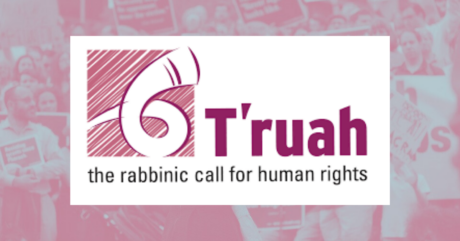NEW YORK — Approximately 200 people currently incarcerated on Rikers Island have reportedly gone on a hunger strike to protest the inhumane conditions there, including extreme cold, unhygienic conditions that contribute to spreading COVID-19, and lack of family visits or video access to attorneys. In response, T’ruah, a rabbinic human rights organization that represents over 2,300 rabbis and cantors and their communities in North America, voiced their public support for those on hunger strike and called on New York City officials to guarantee safety, health protections, and other human rights for those incarcerated there.
In the past year, at least 16 New Yorkers – 15 of them on Rikers Island – have died in city jails. T’ruah has continually supported efforts to improve conditions for incarcerated New Yorkers, most recently sending a letter signed by 65 New York City rabbis and cantors calling for passage of a bill before the New York City Council to end solitary confinement.
T’ruah CEO, Rabbi Jill Jacobs, released the following statement:
“We stand in solidarity with those on a hunger strike on Rikers Island. Remedying unsafe, deplorable conditions, including ending solitary confinement, is a moral imperative.
“Our criminal justice system routinely fails to do justice, especially for people of color. In a society where people of color are treated more harshly by police, radically over-represented in prisons, and oftentimes pressured to accept plea bargains that follow them for the rest of their lives, we are far from a place in which justice is pursued in the fair and balanced way that our Jewish tradition demands.
“It is no accident that many of the essential assertions about human rights within Jewish law appear within discussions of the right of those accused of a crime to a fair trial, and to the dignity befitting a creation in the image of God. Indeed, the Mishnah’s famous statement that “one who destroys a single soul is considered to have destroyed an entire world” (M. Sanhedrin 4:5) appears within a list of procedures meant to prevent the false conviction of someone accused of a serious crime.
“The vast majority of the approximately 6,000 people currently incarcerated on Rikers Island are being held pre-trial and have not been convicted of a crime. But even those who have been convicted deserve to have their human rights protected. We refuse to be indifferent to the cries of our neighbors who are rightfully calling out the human rights abuses that threaten their lives. An arrest or even a conviction should not be a death sentence.
“As conditions on Rikers Island and in other city jails continue to threaten lives, especially as the COVID-19 omicron variant spreads, and as New York City experiences severe cold weather, city officials must ensure the basic needs of all people in their facilities, in addition to ending torturous solitary confinement.”
T’ruah: The Rabbinic Call for Human Rights mobilizes a network of more than 2,300 rabbis and cantors from all streams of Judaism that, together with the Jewish community, act on the Jewish imperative to respect and advance the human rights of all people. Grounded in Torah and our Jewish historical experience and guided by the Universal Declaration of Human Rights, we call upon Jews to assert Jewish values by raising our voices and taking concrete steps to protect and expand human rights in North America, Israel, and the occupied Palestinian territories.

